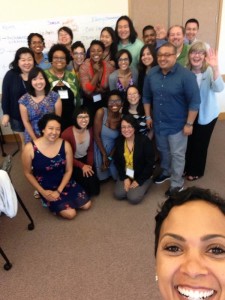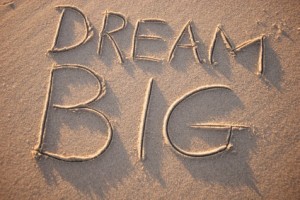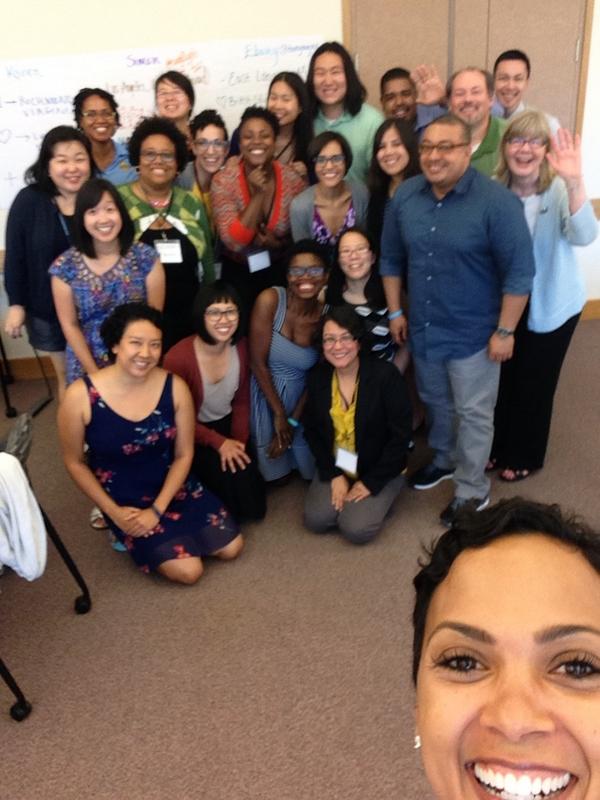by Annie Pho, Rose Love Chou and Karen Gau
The Minnesota Institute for Early Career Librarians (MIECL) is an intensive, one-week professional development program intended for librarians from underrepresented groups in the first three years of their professional careers. Several APALA members attended the 2014 Institute last July and offered to share some of their takeaways in a series of web articles. In this last of three article installments, Annie Pho (University of Illinois at Chicago), Rose Love Chou (American University), and Karen Gau (Virginia Commonwealth University) reflect on MIECL’s discussions on personal vision.

When we attended MIECL, the moderators DeEtta Jones and Kathryn Deiss introduced the idea of crafting a personal vision. They described it as being analogous to a horizon — compelling, inspiring, yet unreachable. It should provide you with a directional force that takes into account all aspects of your life, including your career, health, family and finances.
Why are you interested in crafting a personal vision?
Annie Pho (AP): Crafting a personal vision is really useful because I see it as my guiding philosophy. It guides me in terms of how I approach my career and life choices. Upon listening to DeEtta and Kathryn talk about crafting their own personal vision, I realized just how important it is for an individual to do because it helps you stay on course with what you are doing in your life. At the same time, I had a sinking feeling in my stomach because I realized I had never thought to craft my own personal vision before. I left MIECL with more questions than answers. I am still trying to craft my personal vision, but I know that it’s there. It’s up to me to articulate it.
Rose Love Chou (RLC): Learning about the concept of a personal vision was very helpful to me. I think the question of “where do you want to be in five years” is used too often, even if it’s just rhetorical. I’m not really a binary thinker and tend not to see things in black and white. I really live in the grey area, so the concept of a personal vision that serves as a compass, rather than a checklist, really resonated with me. Instead of only creating goals to reach, a personal vision helps me develop and express my purpose.
Karen Gau (KG): The question “where do you want to be in five years?” hasn’t been particularly helpful for me either. Just over five years ago when I was an office manager for a manufacturing company, I didn’t imagine that being a health sciences librarian was in my future. Having a personal vision can help me focus on the impact I want to have and guide me with making good, forward-moving choices, even when unexpected career and personal obstacles present themselves. So if I end up on a very different path from where I thought I’d be, my personal vision can still act as a compass to help me achieve a meaningful purpose that I’ve defined for myself.
What is a meaningful vision and how do you craft one?
AP: When you are thinking about vision, you have to think big. If your vision is “be a library director, or move up in management,” then it’s not big enough. Your vision should be so big, that it’s unattainable. Like the horizon, it should move away from you as you walk toward it. Life can be pretty unpredictable, so a meaningful vision shouldn’t be shaken if something happens that you had not planned. I see a meaningful vision as something that influences not only my professional career, but also my personal life. In terms of how to craft your own vision, I started asking myself why I do what I do. Why am I a librarian? What do I want to contribute to not only the workplace, but society? What would make me happy in my life?
RLC: For me, a meaningful vision has to help me figure out how I want to be a leader and what I want to do as a leader. It has to help me turn my aspirations into action. One of the things that stuck with me from MIECL is the idea that the intention to lead, rather than just drifting into a leadership role, is important. Some questions to consider to help discover your purpose and voice: What are your personal values? What do you think and why?
KG: These are all great points. Touching on what Rose said, MIECL made it clear that knowing yourself is key to crafting a meaningful vision, too. For example, what are your strengths and weaknesses? How do they affect your way of making an impact?
How does one manage the gap between your Ideal and your Actual self?
AP: This can be a really tough thing to do. I know many librarians who hold themselves to a really high standard, but sometimes it’s just not sustainable to be going at full-speed 100 percent of the time. You’ll never be your own ideal, but that’s why crafting a personal vision is so important. You work toward your ideal self, but you also have to be OK with failing sometimes. That’s how we move forward in life.
RLC: Managing the gap is another concept I learned from DeEtta that was incredibly helpful. The gap is the space between your Ideal and your Actual. Use the tension between these two to create goals. Do not measure yourself by comparing your Actual to your Ideal. Measure your progress by comparing your Actual to where you were previously.
KG: I think managing this gap between your Ideal and Actual self is key to having a good work/life balance, which is very important to me. I wonder if, on the flip side, integrating work/life balance into your vision as a value could help with managing this gap.

When you are thinking about vision, you have to think big. If your vision is “be a library director, or move up in management,” then it’s not big enough.
Have you created a vision for yourself since MIECL?
AP: Ever since I returned from MIECL, I’ve been thinking about how to articulate my personal vision. It’s really hard to really know what you’re working toward. For me, I tend to make my progress by trying to deal with what is directly in front of me, and I don’t always take the time to look up and ask myself what is on the horizon.
KG: I’m working on mine, too. I’ve been talking about it with my MIECL mentor, whom I continue to meet with every month.
RLC: I feel like I am perpetually thinking about my vision. While I have some aspects of it down (mainly when it comes to family and personal life), I’m still working on the vision related to my career.
Editing assistance provided by Jaena Rae Cabrera and Melissa I. Cardenas-Dow.

